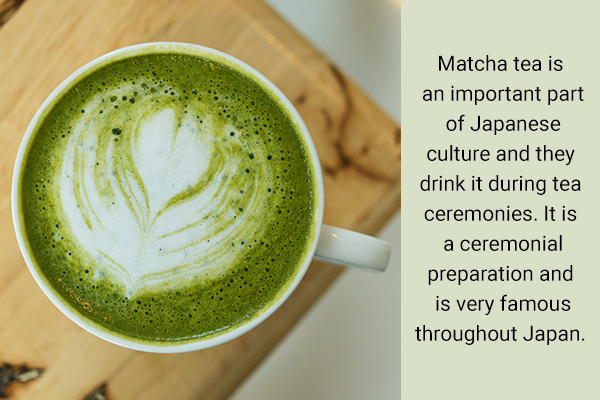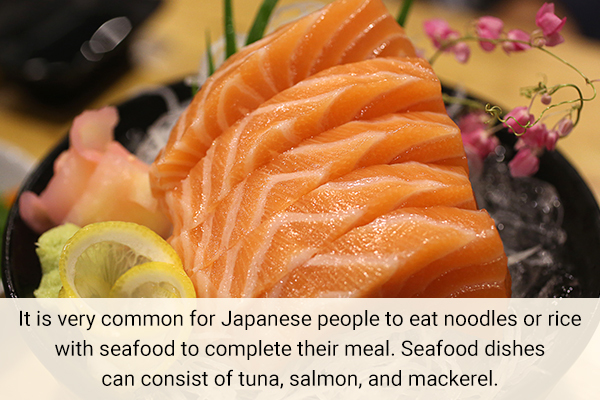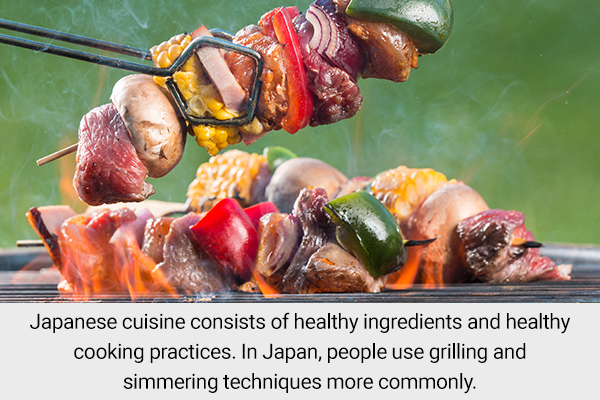In this article:
Japan is an amazing place with beautiful scenery from the greens of the mountains and the blues of the sea. Their culture is very colorful and vibrant.

To add to it, Japanese people seem to be so young looking, especially Japanese women, who are very slim and always look youthful. No wonder people around the world why Japanese look so much younger than their actual age!
What contributes to Japanese people looking so healthy and young is their lifestyle and diet. This article will discuss them in detail so we can make changes in our lives to get such benefits. (1)
Why Do Japanese Women Stay Slim and Young Looking?
Women in Japan maintain their youth and slim figure by doing the following.
1. Healthy eating
The eating pattern or eating culture in Japan is very different from other cultures.
Japanese people tend to eat more frequently but in smaller portions. They also cook their meals healthily by grilling, steaming, or baking. These practices keep them protected from heart issues and aid in weight loss.
Moreover, their meal consists of whole grains, which are rice or cereals. Most importantly, they respect the food they eat, which means they’ll sit and eat quietly instead of eating on the run or chatting. (2)
2. Green tea

Japanese people consume a type of green tea called matcha, which is prepared from very good-quality tea leaves that are dried and transformed into a fine powder, which can then be mixed with warm water to prepare fresh green tea.
Matcha tea is an important part of Japanese culture and they drink it during tea ceremonies. It is a ceremonial preparation and is very famous throughout Japan.
The great thing about this tea is that it is not only healthy for you but also extremely delicious to taste.
It is also considered one of the healthier teas around the world because it is immensely rich in antioxidants. It helps you fight off free radicals that cause aging signs such as fine lines and others. The tea is also said to help in managing a good healthy weight.
Additionally, this tea is linked with other health benefits such as keeping your heart healthy and lowering your risk of cancer. Studies have shown that Japanese people who drink Japanese matcha suffer less from heart diseases. (3)
3. Fermented foods
Kimchi, tempeh, miso, kombucha, and other such foods are a big part of Japanese culture. These are examples of fermented foods that are very famous in Japan.
Foods such as these are prepared after fermentation with lactobacillus, which is a bacterium that feeds on the starch in the food, creating what is known as lactic acid. This process keeps all the healthy nutrients in the food while promoting more beneficial components such as vitamin B, omega-3 fatty acids, and probiotics. (4)
The process of fermentation supports the health of good bacteria in the gut and aids in digestion by promoting the breakdown of food. This is why such foods can also be good for weight loss.
Not only this, but fermented food causes the removal of toxins and other harmful substances such as heavy metals from the body.
Moreover, fermented products, dairy or nondairy, are helpful for intestinal microbes that improve gut-brain communication and connection. (5)
4. Seafood

Japanese people prefer seafood over red meat, unlike many other cultures. Red meat is said to be associated with a variety of health issues such as chronic illnesses, inflammatory issues, high cholesterol levels, and obesity.
It is very common for Japanese people to eat noodles or rice with seafood to complete their meal. Seafood dishes can consist of tuna, salmon, and mackerel.
Fish is a very good food option for those who want to stay healthy. This is because fish is a good source of omega-3 fatty acids and various other nutrients essential for your body. Seafood is excellent for the brain, heart, and other organs. (6)
Omega-3 fatty acids will help keep your weight in check and reduce body fat. It will also lower any inflammatory response while benefiting the nervous system. Seafood is also good for your skin by fighting disorders such as psoriasis, acne, melanoma, and atopic dermatitis. (6)
5. Walking
In Japan, it is well known that walking is an important form of exercise that should be incorporated into their daily lifestyle rigorously.
Walking not only promotes weight loss but also is good for heart health. It also boosts energy levels and puts you in a good mood. Walking is great for relieving any stress you may be dealing with.
In Japan, taking public transport such as the subway is very common, and people prefer to walk to and from the subway stations. It is also a common practice for parents to walk their children to school and not take the bus or the car.
Apart from walking regularly, investing in cycling and jogging are also pretty commonly seen in Japan. (7)
6. Martial arts

Japanese people perform various forms of martial arts, which include:
- Aikido
- Karate
- Judo
All these martial art forms play a great role in keeping them fit and ensuring their overall well-being.
Martial arts are important for heart health and building endurance. They strengthen the muscles and improve flexibility. Additionally, they are good for losing weight and slowing the process of aging. (8)
Other benefits of doing martial arts include: (9)
- Improving body composition
- Increasing bone formation
- Reducing bone resorption or breakdown
- Reducing inflammation
- Helping manage menopausal symptoms
7. Hot springs
Taking a bath in hot springs is a very well-known practice across Japan. In the local language, these hot springs are called onsen. It is said that this ritual is good for prolonging life.
Japan has a lot of hot springs since it is a volcanically active country. Hot springs are linked with benefits for health because of their high temperatures and rich mineral content.
Hot springs contain minerals including: (10)
- Magnesium
- Silica
- Calcium
- Niacin
When a person bathes in a hot spring, they are soaking up in these minerals that are good for the body. It will improve the circulation of blood in the body and promote the flow of oxygen, which in turn are good for the heart and other important body organs.
Sitting in hot springs is also good for mental health as it is a great way to de-stress and promote a good night’s sleep. (11)
Most-Asked Questions
What are some healthy cooking methods in Japan?

Japanese cuisine consists of healthy ingredients and healthy cooking practices. In Japan, people use grilling and simmering techniques more commonly. These techniques are associated with using a limited amount of oil, which is good for your health.
Japanese people avoid deep-frying. They enjoy fried food with healthy dishes to create a good overall balance. (12)
Why do Japanese people not eat on the go?
People in Japan prefer to eat sitting down. It is, in fact, considered not polite to eat while on the go. This is why you won’t see anyone eating while walking or riding a vehicle.
In Japan, people respect their food and do not do any other activity while eating. They eat slowly and give their stomach time to process the food.
Chopsticks are a good way to aid with this. Eating with chopsticks limits the portions and speed at which people eat. (13)
What are some Japanese food etiquettes?
- Do not fill your plates completely, leave some portions empty.
- Avoid too much salt and fat.
- Never serve big portions but eat in smaller portions.
- Serve food fresh only.
- Garnish food properly to beautify it.
- Lower waste by incorporating proper cooking techniques and storage methods. This will also help reduce leftovers.
Final Word
Japanese people are very proper when it comes to their health and choosing the right diet and lifestyle to support the same.
Everything from their food to daily activities is planned, making their health a priority. They serve, eat, and divide portion sizes, all while ensuring good health.
- Was this article helpful?
- YES, THANKS!NOT REALLY


